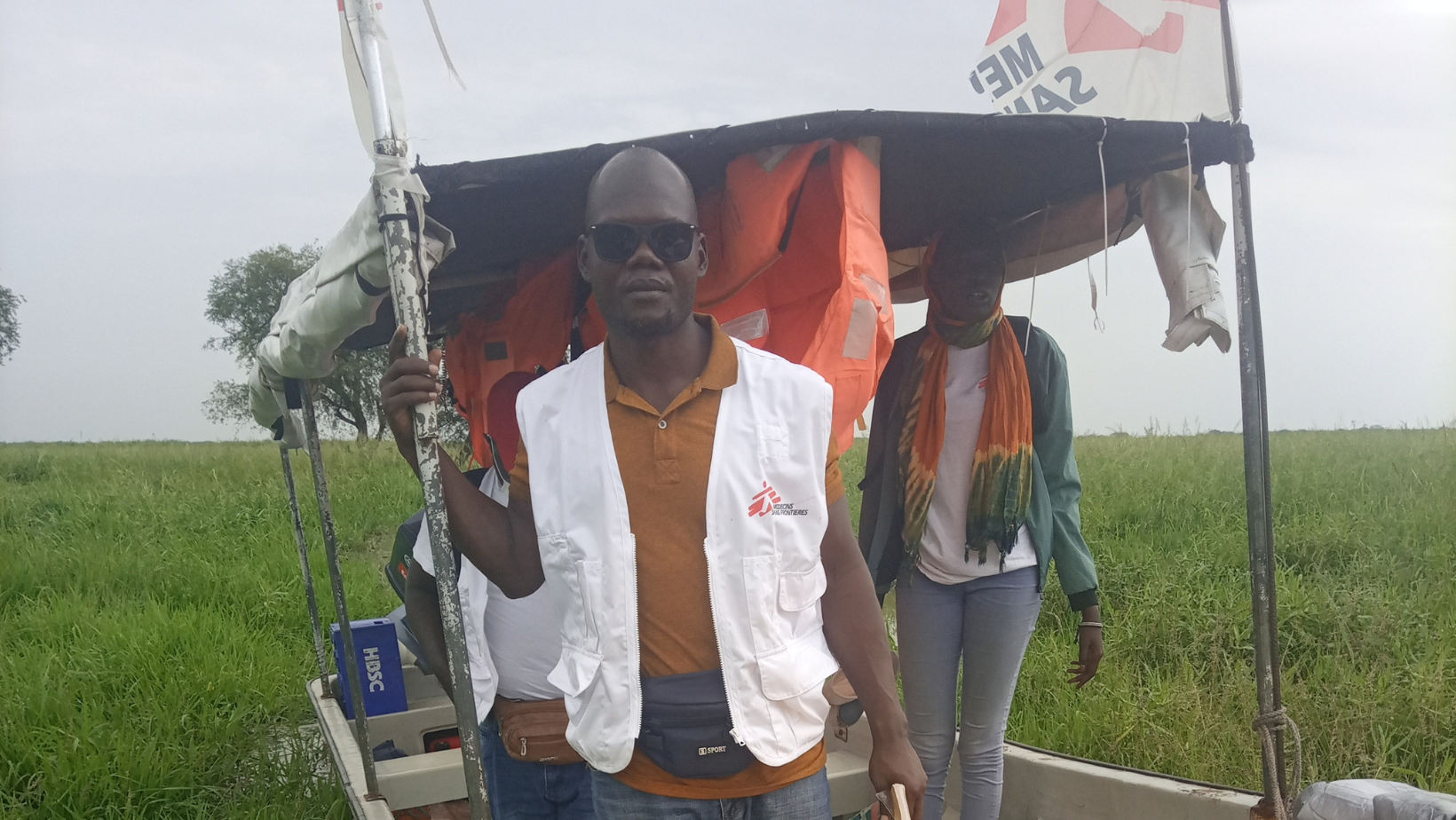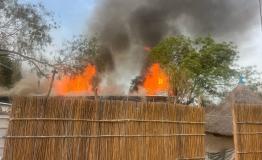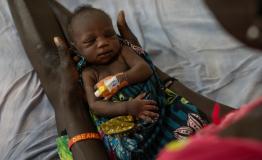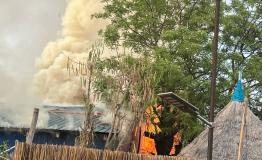My name is Philiam Adriko. For the last year, I have been working for Médecins Sans Frontierès/Doctors Without Borders (MSF) in South Sudan as a Humanitarian Affairs Manager. In this position, I contribute to the analysis of contexts and patterns of violence and displacement of people. We then use this information to help improve our medical services and define advocacy strategies to help the people with whom we work. Previously, I worked with other humanitarian agencies in the area of child protection and Gender-based violence (GBV) advocacy.
In a context like South Sudan, this job is both overwhelming and stimulating. My most memorable experience was during the measles outbreak that hit Western Equatoria State in March this year. We had to organise an isolation centre in less than two weeks. The outbreak was huge, we had to set up a 21-bed capacity facility in Yambio State Hospital to manage critical cases, and a nine-bed capacity facility in both Sakure and Gangura. Yambio State Hospital was a permanent structure given by the Ministry of Health but Sakure and Gangura were temporary emergency structures constructed by MSF.
Our team’s quick response through the isolation centre and the vaccination drive that we launched helped control the spread of the disease. One to two deaths a week were recorded at the onset of the outbreak. However as the emergency response was started, there was a reduction in number of people hospitalised and in mortalities, including among children in Sakure and Gangura areas after isolation centres were established in these two Payams. (A Payam is an Administrative Division after a village)
However, as well as the successes there are also a few low moments. Our teams intervene depending on the needs, to provide humanitarian and medical services to the communities who need it the most. In some cases, at the end of an intervention, we must leave one place and move to another
The memory of the people in Sakure, Gangura and Yambio as the MSF team was departing, at the end of the measles campaign is still fresh in my mind. We had become one big community, and then, we had to leave. This was heart breaking, but also fulfilling because the measles outbreak had been controlled.
South Sudan has breath-taking terrain however there are long treacherous roads, mountainous landscapes and crocodile-infested rivers. As humanitarian workers, these form our daily encounters. With time, the fear turns into excitement as we manoeuvre.
For example, the eight-hour boat ride in Upper Nile State, from Malakal to Ulang on Rivers Nile and Sobat was quite memorable. It was striking to see peaceful coexistence between the different users of the river. Every time we approached a fisherman on a canoe, we had to slow down to avoid capsizing the canoes because our vessel produced strong waves. This gesture promoted a peaceful coexistence, and we would interact with the fishermen as we passed them and many times, they would raise their thumbs as a sign of appreciation for the gesture.
I remember one time in Ulang, we had to travel by boat through a very bushy canal for four kilometres to access the Pacuei and Ruplet communities. We had gone to assess water, sanitation and hygiene needs (WASH) for the distribution of water purifiers to these communities that are constantly affected by floods and displaced by cattle raiders and inter-communal clashes. The cheerful community at the opposite end of the trip made the journey worth all the effort for me and the team.
We were surprised at their knowledge of early warning systems or signs that they have in place in case of disasters like floods. We found a community very well informed about their humanitarian situation and what they needed to do, even in collaboration with organisations like MSF.
At the end of the day, I have come to appreciate that humanitarian work is a calling. It involves a lot of sacrifices as one must forgo and forget a lot of life’s good things, as we try to make other people’s lives better.
I think one of the best gifts for the people of South Sudan would be if the country could achieve total peace. However, as humanitarian workers, we’ll continue to deliver critical services to those who need it



